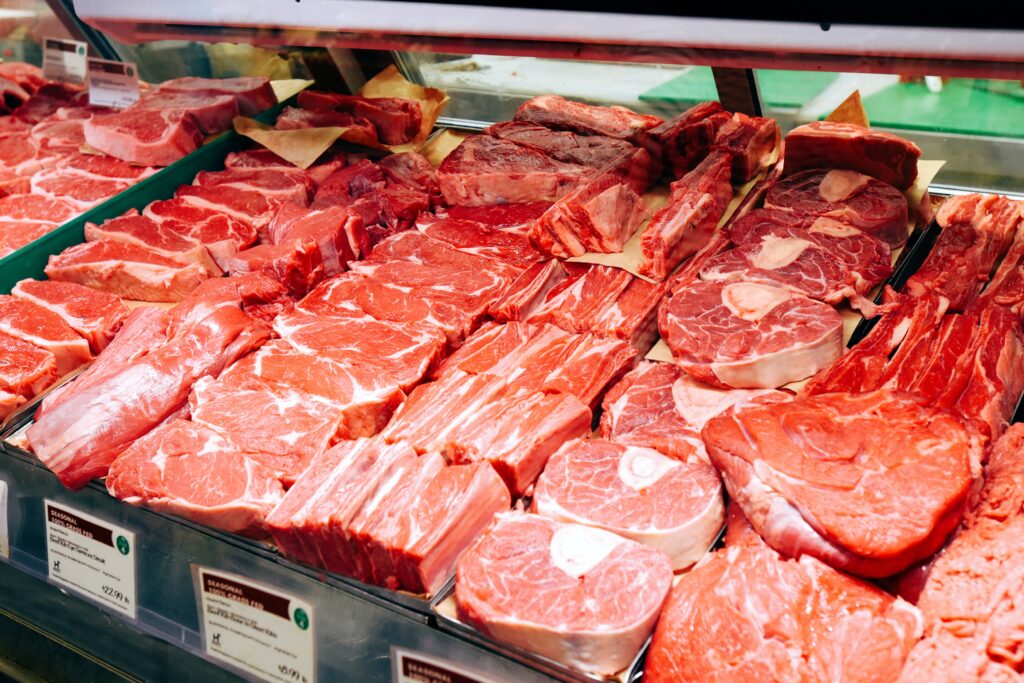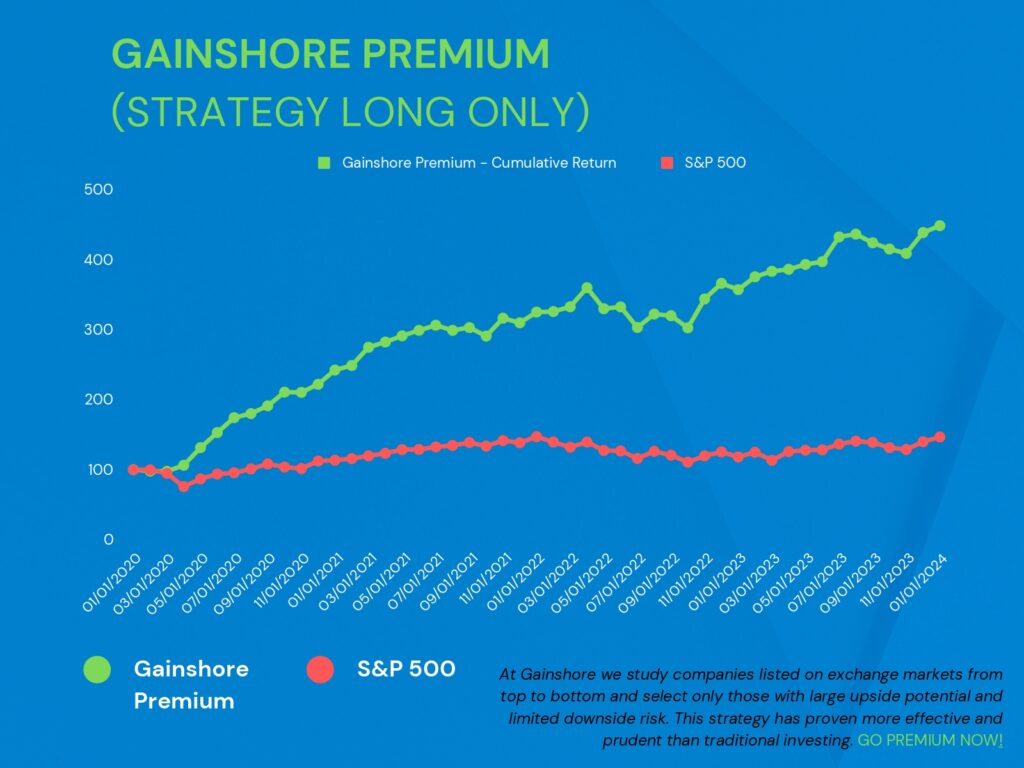WH Group is the largest pork-producing company in the world, ranking first in China, the US and key markets in Europe. Their unique global platform integrates hog production, hog slaughtering, and the processing and distribution of packaged meats and fresh pork; it makes them the clear leader in all of the key segments of the pork-producing industry.
WH Group Limited: Revenue breakdown
Packaged products 51.7%
Pork 41.9%
Others 6.4%
WH Group Limited: Downward Trend and Headwinds
We observed the downward trend began in 2020, primarily driven by the initial impact of the COVID-19 pandemic, which resulted in a decline in the company’s net income to its lowest level in the past three years. The uncertainty surrounding the new pandemic further contributed to the decline. Subsequently, the company faced a series of unfortunate factors that affected its performance. In 2021, there was a sudden and significant decrease in the value of a kilogram of pork, with a decrease of 39%. In 2022, the company encountered inflation and rising energy and grain costs. These factors, as reflected in the cash flow statement, led to financial losses.
Despite an increase in the quantity of products sold, the company struggled to generate substantial income due to record-high costs caused by inflation, the ongoing war in Ukraine, and the persistent impact of the African Swine Fever. The African Swine Fever has been a significant challenge for the business since 2019, resulting in substantial losses in both China and Europe. In 2022, the income remained nearly stagnant, with $387 million not yet classified as a loss but potentially subject to reclassification subsequently to profit or loss. Consequently, the company’s income for the year remained at a similar level to that of 2021. These factors prevented the management from covering expenses or generating more Revenue, leading to a negative net cash flow.
Typically, this situation would not be problematic as the company increased its monetary reserve in 2020 in anticipation of difficult periods, and its revenue still increases. However, these poor financial results, coupled with growing market concerns and strained relations between China and the USA, resulted in a decline in the company’s valuation.
The year 2023 will be crucial in determining whether the management has taken measures to address the rising prices and restore profitability to the company.

WH Group Limited: Red Flags
The operating profit of the pork business has reached its lowest point since 2020. In 2021, the operating profit of the pork industry amounted to only $3 million, a significant decrease compared to the $341 million recorded in the previous year. This decline can be attributed to the sharp decline in the price of pork in China, where the price per kilogram dropped by 39%. The price decrease is a result of the increased production of pork following the fading of the African Swine Fever (ASF) outbreak in China, coupled with minimal COVID-19 restrictions. Despite an increase in pork consumption, the revenue loss resulting from the price decrease was not offset, leading to a loss of $53 million in the Chinese pork sector, in contrast to the $271 million gain in the previous year.
In Europe, the pork industry faced challenges such as rising energy costs and the ongoing impact of the ASF epidemic, which continued to reduce pork production and increase production costs. Consequently, the operating income of the European pork industry incurred a loss of $8 million, compared to a gain of $103 million in the previous year.
However, in 2022, the situation improved. The pork business managed to achieve profitability without significantly increasing the quantity of pork sold (with sales of $11,969 million in 2021 compared to $11,797 million in 2022), resulting in a gain of $30 million. The year 2023 will be crucial in determining whether the issue of low profitability in the pork industry has been resolved.
Raising Animals in large spaces
To make matters worse, California — which consumes about 15% of the United Sates’ pork — passed a law requiring meat sold in the state to come from animals raised in larger spaces, raising costs for producers. Beginning July 1 2022, only meat from animals raised under the new regulations can be sold in the state, although pork that’s already in the supply chain by that date can be sold until the end of the year, the California Department of Food and Agriculture said Wednesday.
Smithfield (owned by Hong Kong-listed WH Group (OTC:WHGLY) topped slaughtering hogs at its only California plant earlier this year. Smithfield said they are now worried other states may add their own laws, forcing more costly farm conversions.
Smithfield also cited higher taxes, utility costs and labor costs in the state compared with other areas where it operates.
(https://www.wsj.com/articles/smithfield-foods-citing-high-costs-of-operating-in-california-to-close-pork-plant-11654950795)
In May 2022, the Group announced the closure of our processing facility in California, exit of certain hog farm operations in Arizona and California, and reduction of our sow herd in Utah, as operating in these areas had been increasingly costly. As a result, we incurred various exit costs and disposal charges, such as accelerated depreciation, and employee termination benefits totalling US$151 million.
WH Group Limited: SWOT Analysis
Strengths:
- Strong market position: WH Group Ltd is one of the world’s largest suppliers of pork and packaged meat products. It has a significant market presence in China, the United States, and other global markets.
- Diversified product portfolio: The company offers a wide range of products, including fresh pork, packaged meats, and poultry, catering to different customer preferences and market segments.
- Operational efficiency: WH Group has a vertically integrated supply chain, which allows it to control various stages of production, from hog farming to meat processing and distribution. This integration helps optimize operational efficiency and maintain quality control.
- Established brands: The company owns well-known brands like Smithfield, Farmland, and Henan Shuanghui, which enjoy strong brand recognition and customer loyalty.
- Good return on capital at ca. 15%
- Low indebtedness + 76% of borrowings at fixed interest rates
- Hedging activity to mitigate commodity price risk associated with the raw material costs and
- forward sales of packaged meats and pork businesses seems to be effective
Weaknesses:
- Dependence on pork market: WH Group’s business heavily relies on pork products, which can make the company vulnerable to fluctuations in pork prices and demand. Any disease outbreaks or regulatory changes affecting the pork industry could impact its financial performance.
- Geographical concentration: While WH Group has expanded its operations globally, it still generates a significant portion of its revenue from the Chinese and American markets. This concentration exposes the company to risks associated with these specific markets, such as geopolitical tensions or changes in trade policies.
- Negative publicity and controversies: WH Group has faced criticism and controversies in the past related to environmental impact, animal welfare, and food safety practices. These issues can damage the company’s reputation and affect consumer trust.
- Negative shareholder’s return.
- Negative FCF conversion.
Opportunities:
- Growing global demand for protein: As the global population continues to rise and dietary preferences evolve, there is an increasing demand for protein-rich foods. WH Group can capitalize on this trend by expanding its product offerings and exploring new markets.
- Health and wellness trends: With a growing focus on healthy eating and sustainability, WH Group can develop and promote healthier and environmentally friendly products, such as organic or antibiotic-free meat options, to cater to changing consumer preferences.
- Acquisition and strategic partnerships: WH Group can pursue strategic acquisitions or partnerships to diversify its product portfolio, expand its global reach, or enhance its capabilities in areas like technology or innovation.
- The largest customer feeds the world’s largest population and it has a growing middle class that eats more pork and meat products.
- The Chinese Central Bank is currently stimulating the economy by injecting large amounts of money, this is fueling Chinese stock prices as shown in the October 2024 Chinese stock market rally.
Threats:
- Competitive landscape: The meat industry is highly competitive, with numerous local and global players. WH Group faces competition from other major food companies as well as regional producers. Intense competition can impact market share, pricing, and profitability.
- Volatile input costs: Fluctuations in feed prices, particularly for animal feed ingredients like grains and soybeans, can affect WH Group’s production costs and profitability.
- Regulatory environment: Changes in food safety regulations, labeling requirements, or trade policies can create challenges for WH Group’s operations, especially as it operates in multiple countries with varying regulatory frameworks.
- Consumer trends and preferences: Shifting consumer preferences towards plant-based alternatives or vegetarian/vegan diets could impact the demand for traditional meat products, potentially affecting WH Group’s sales and market position.
- Antitrust litigations ongoing.







